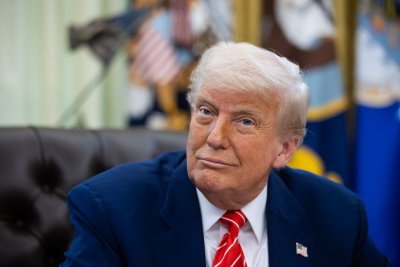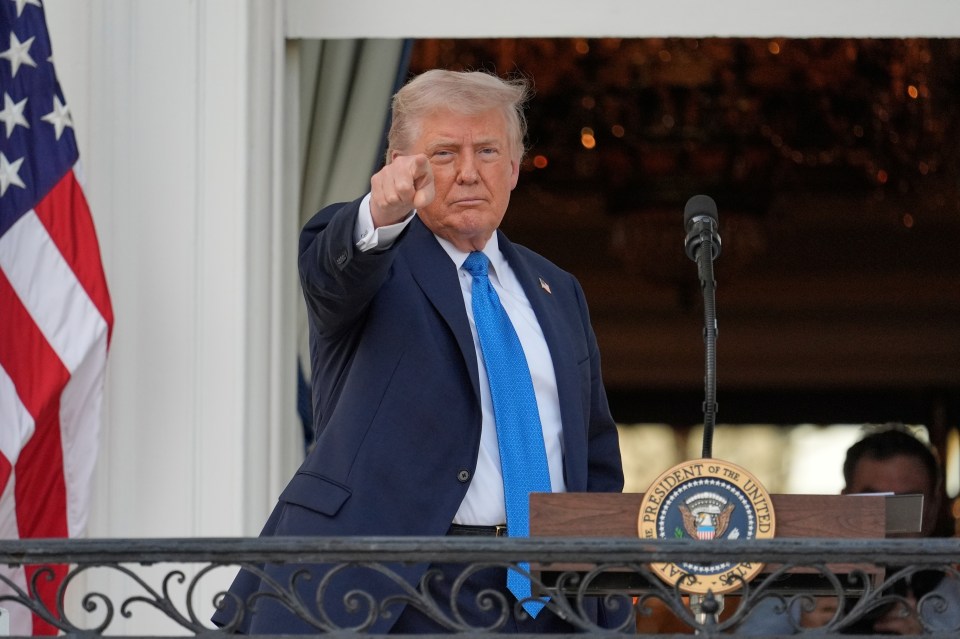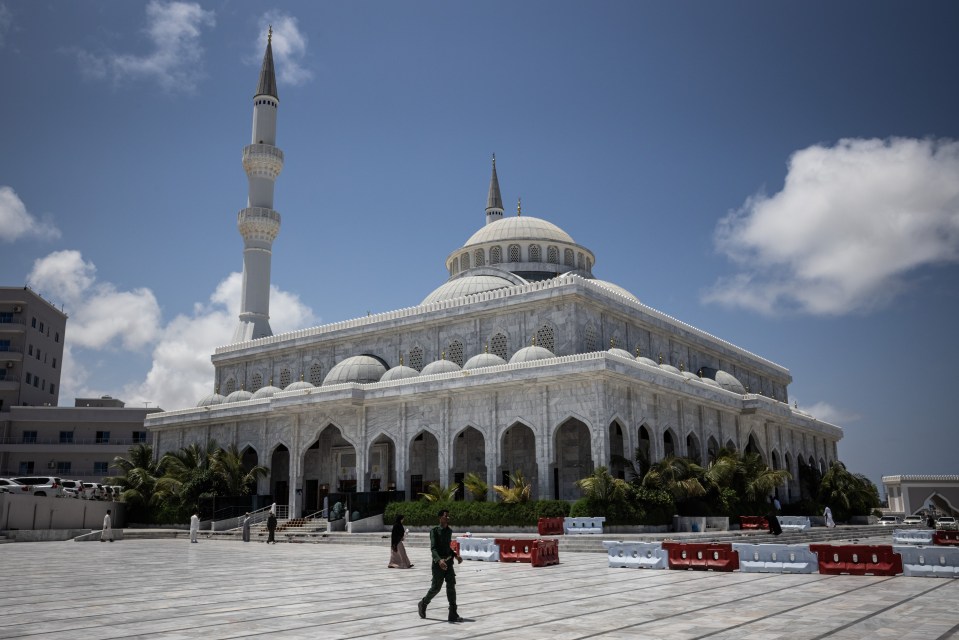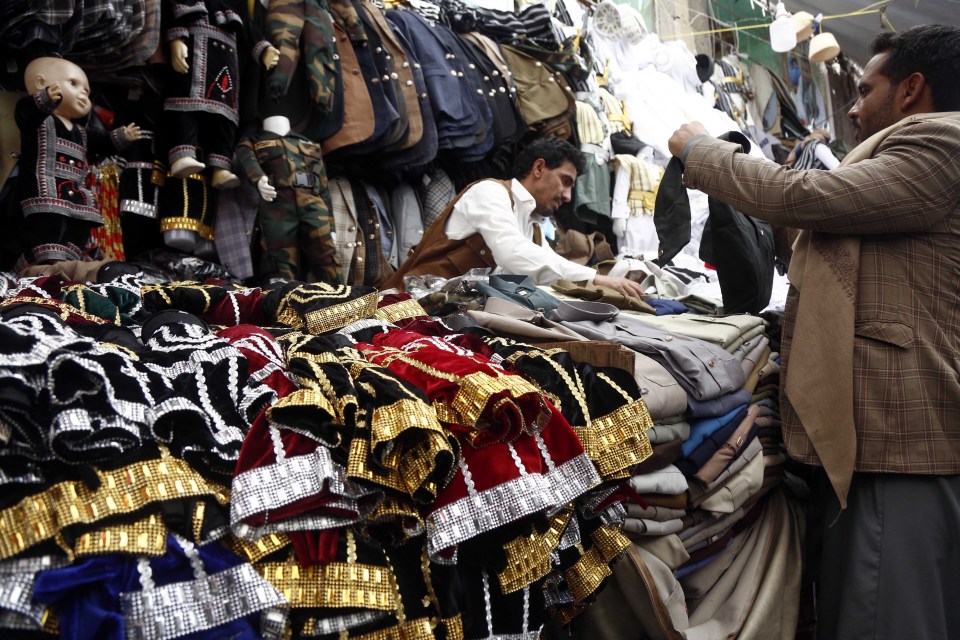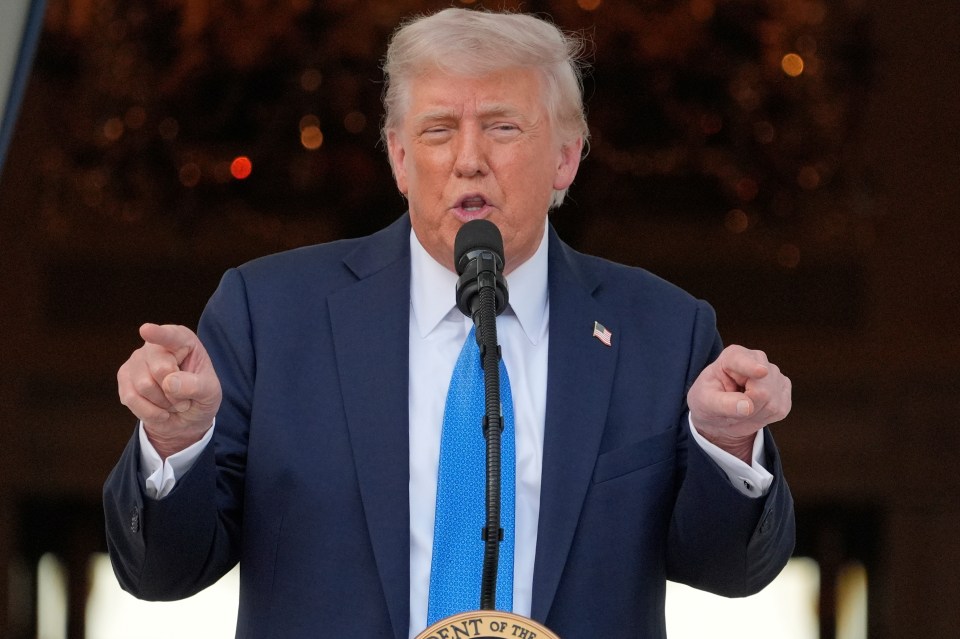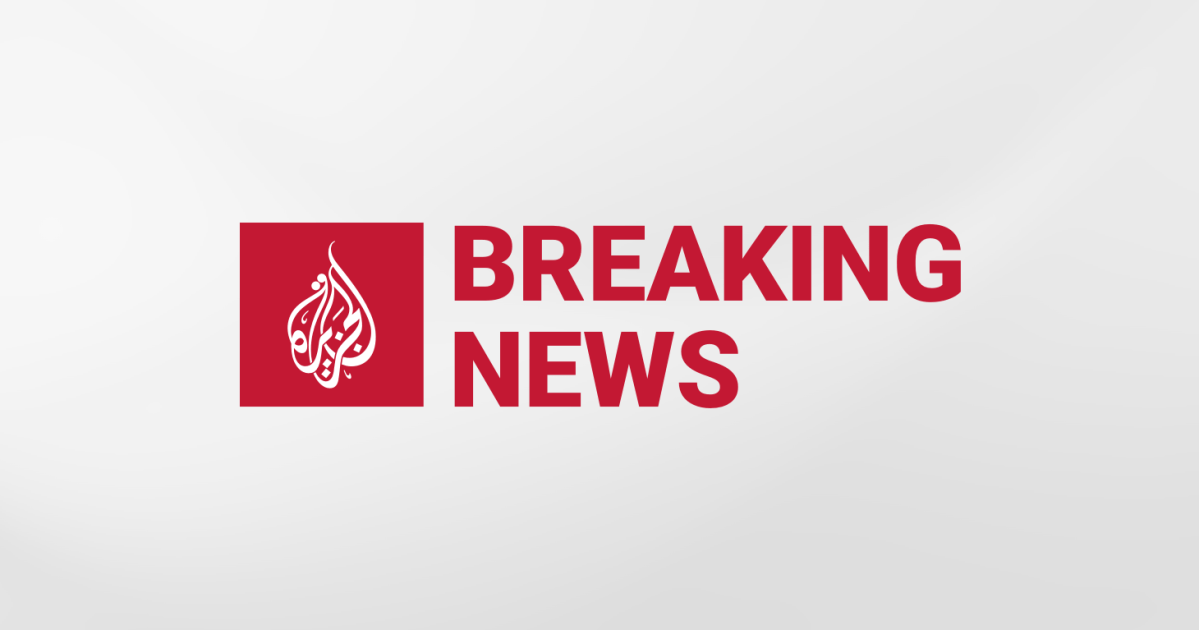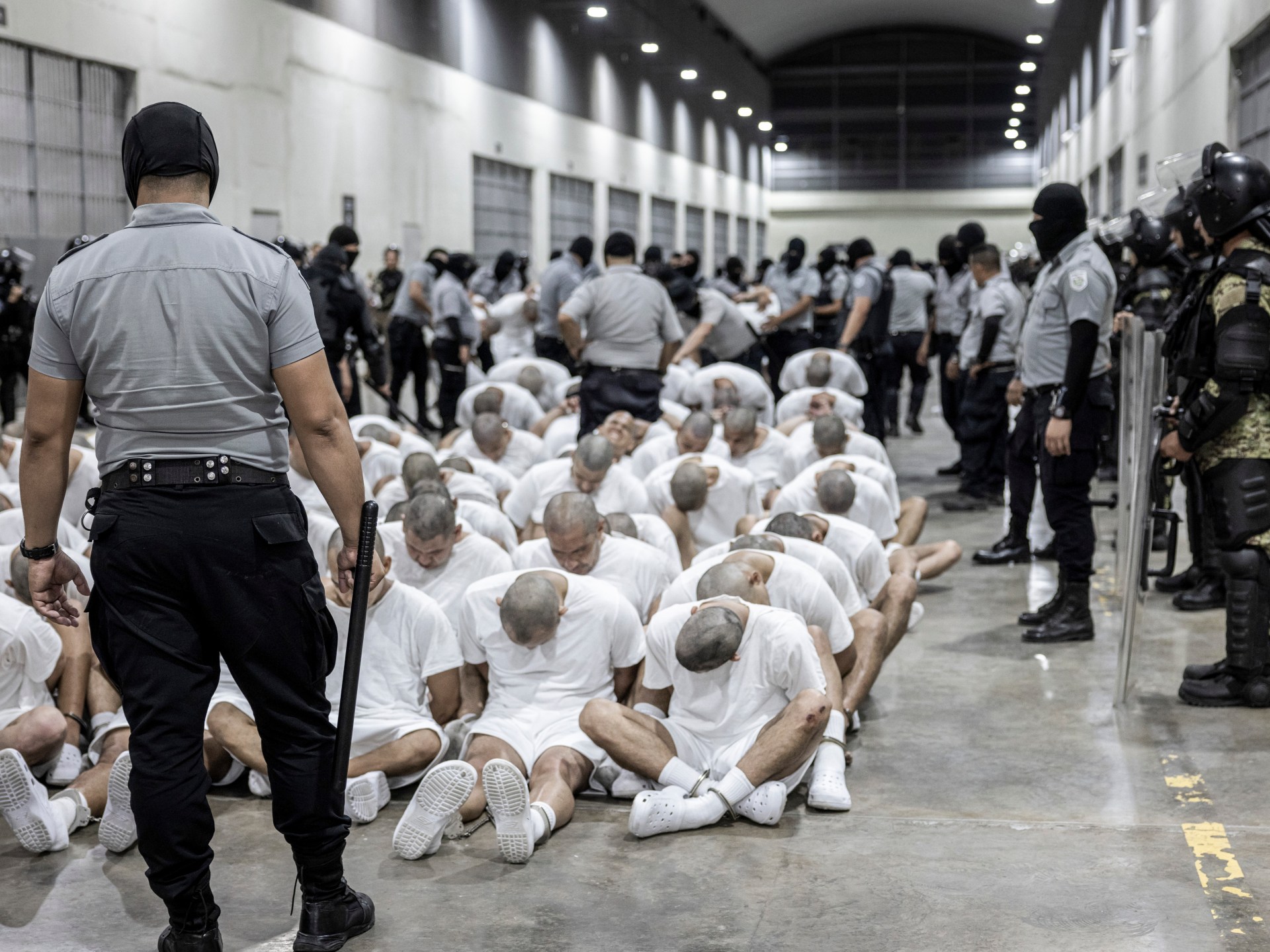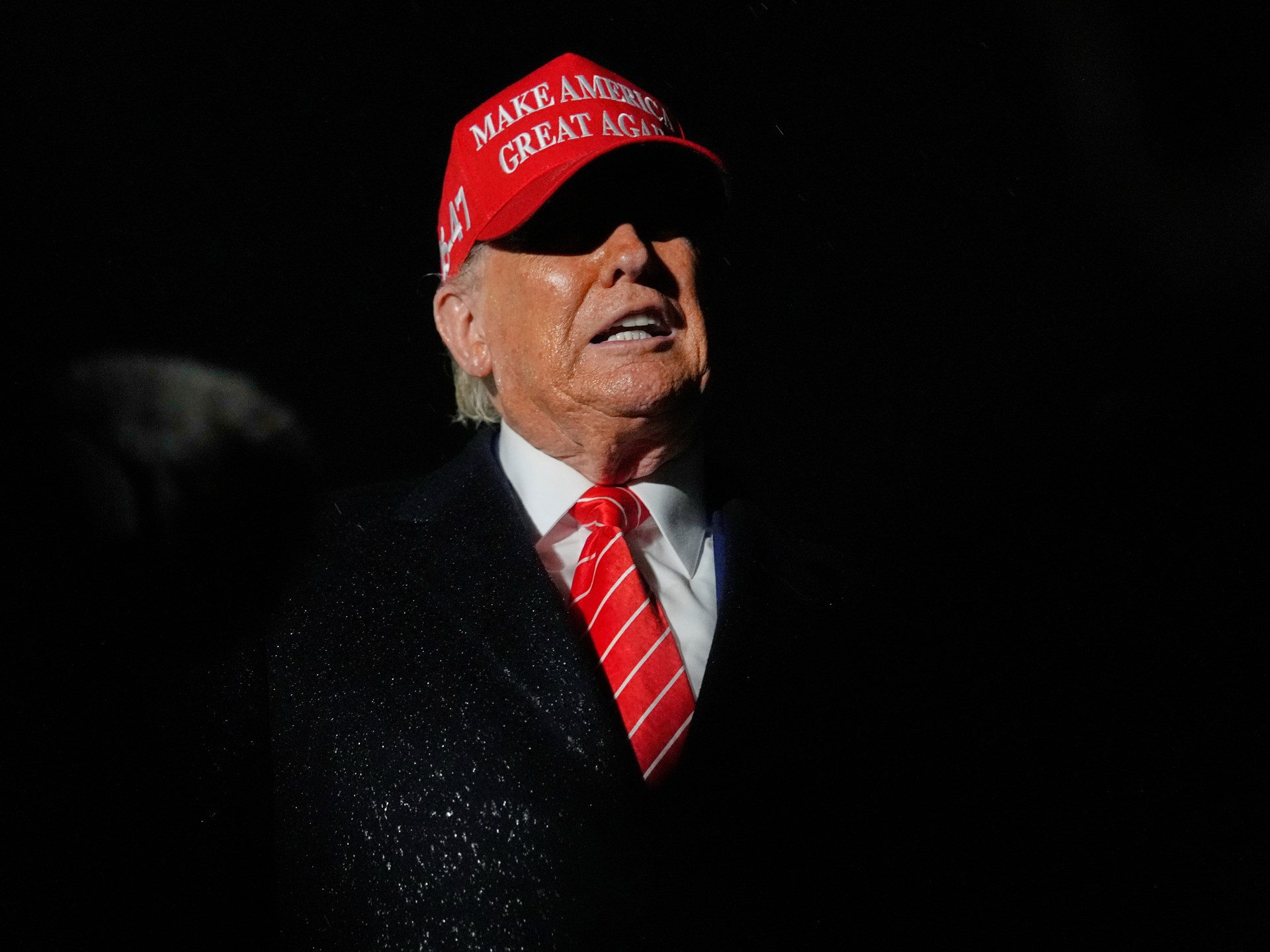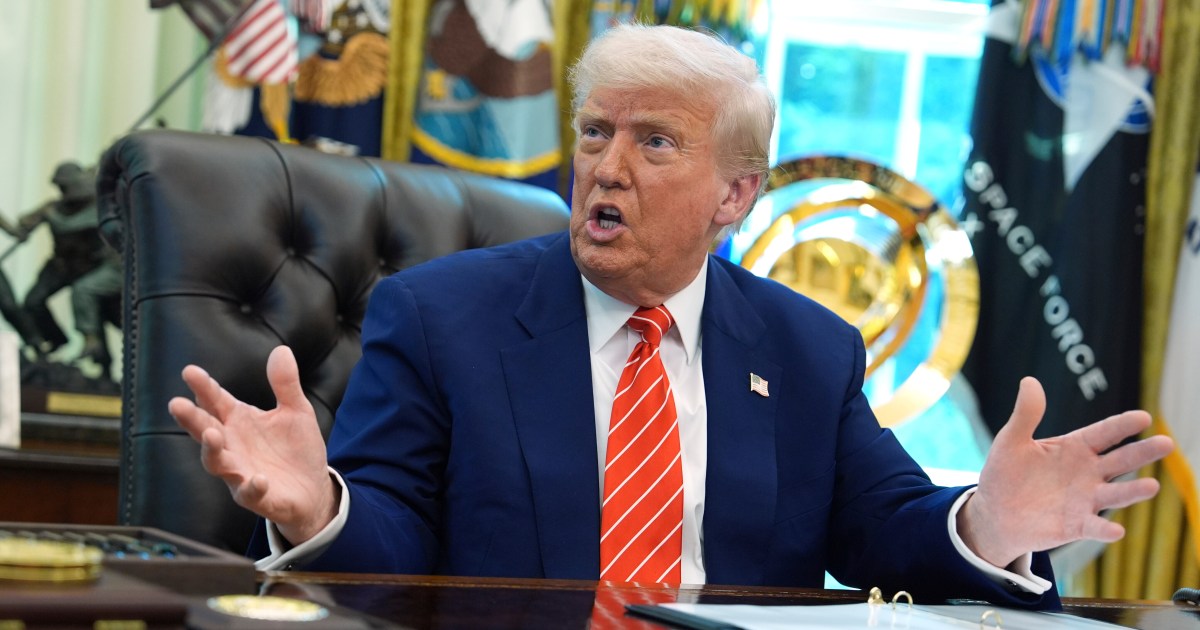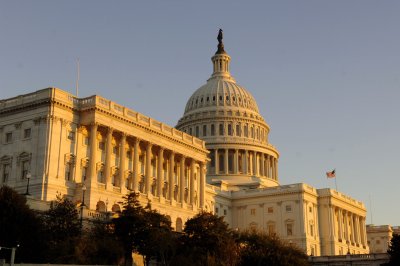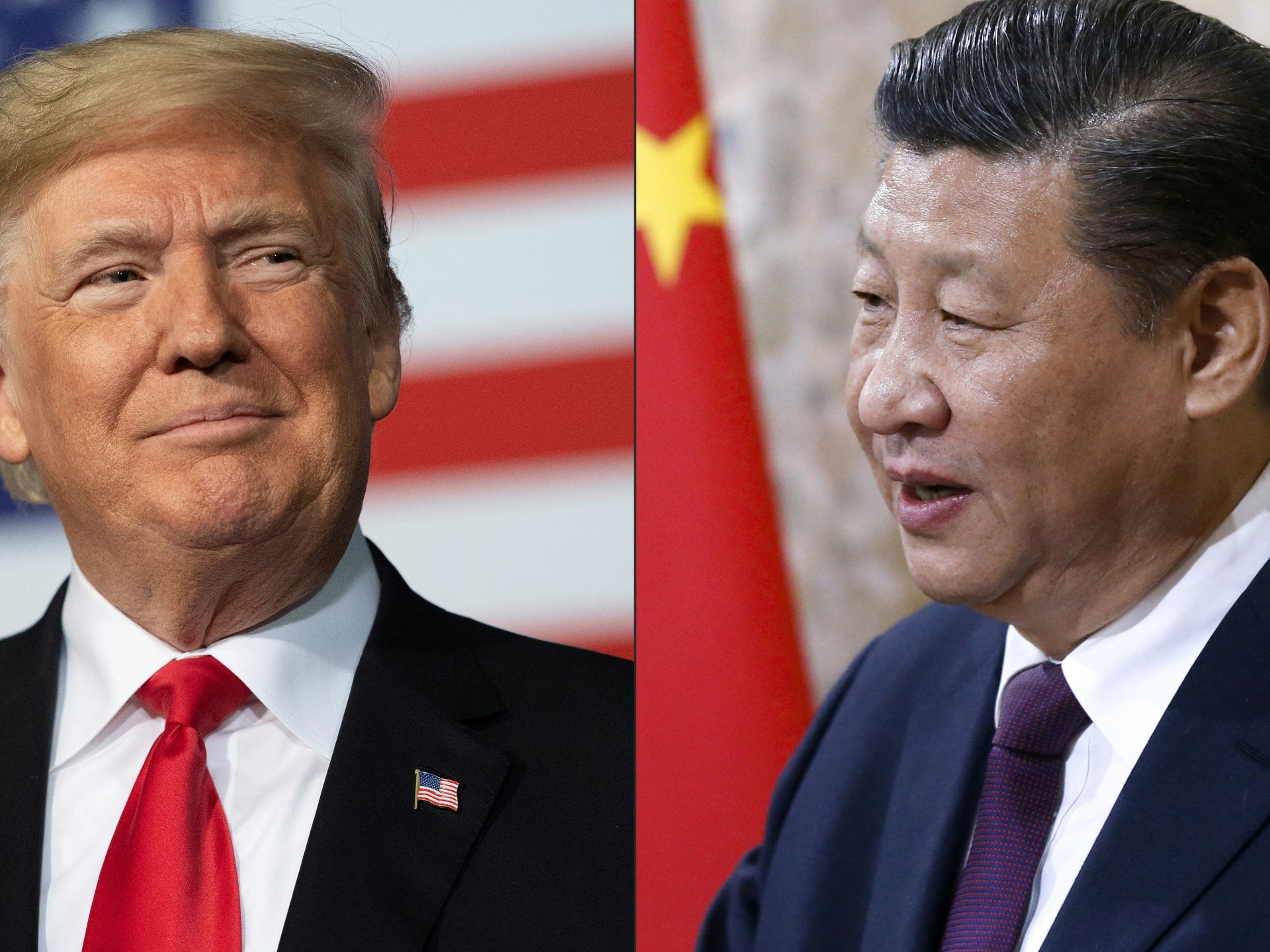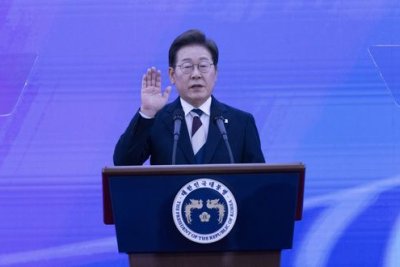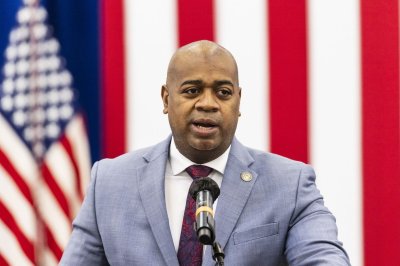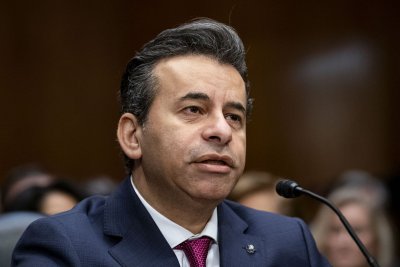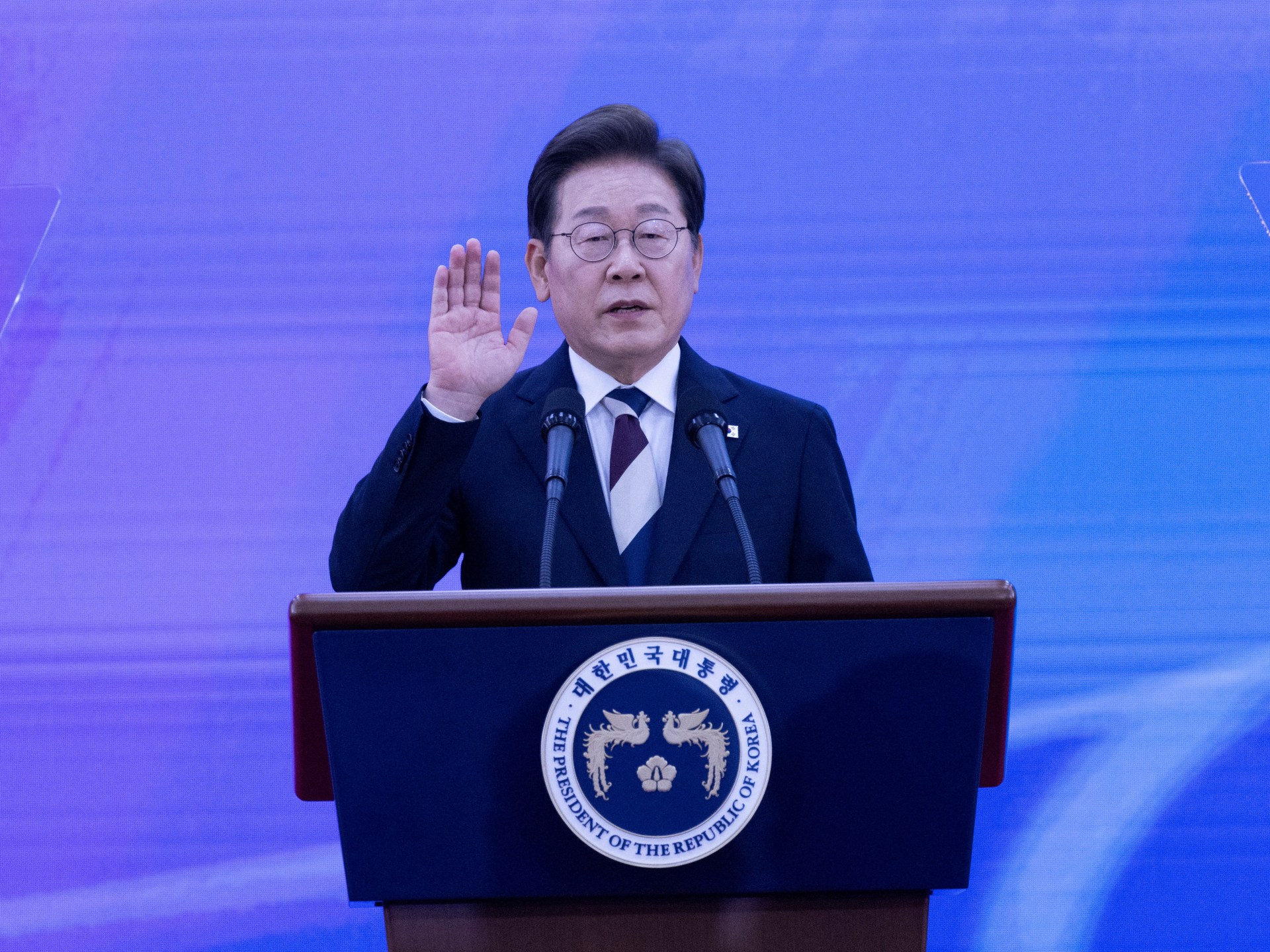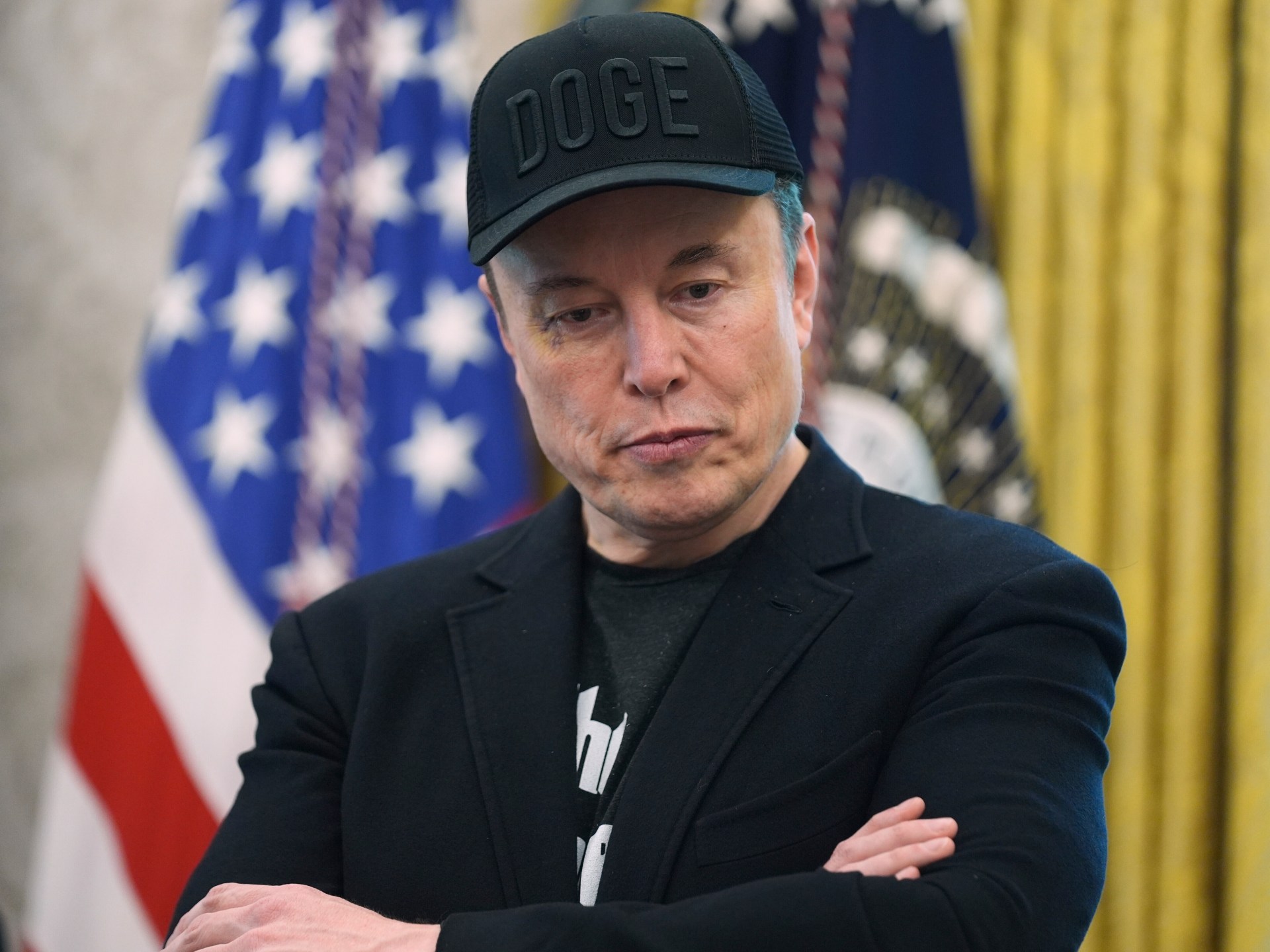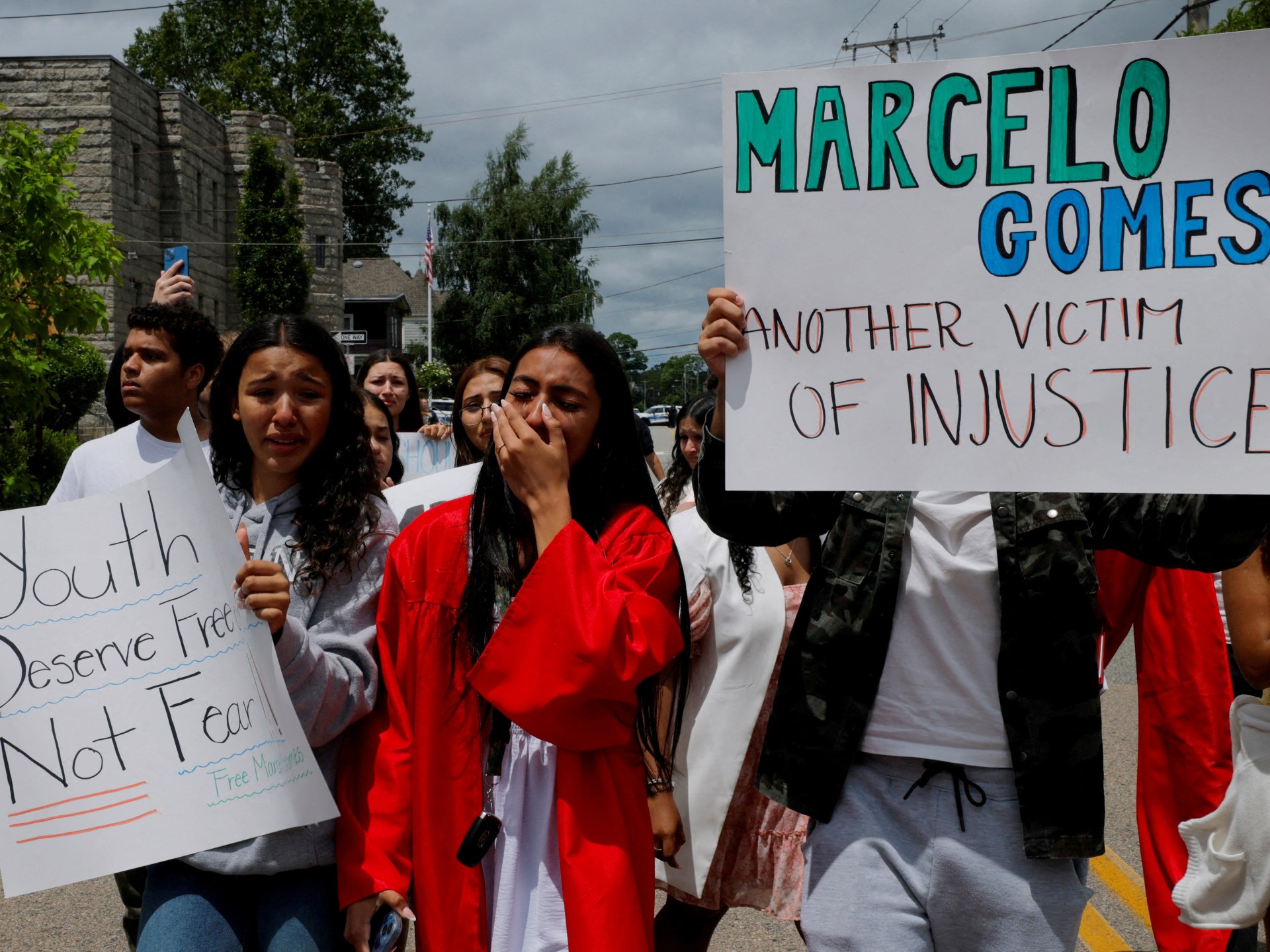Washington, DC – There were shackles at her wrists. Her waist. Her ankles.
The memory of being bound still haunts 19-year-old Ximena Arias Cristobal even after her release from Immigration and Customs Enforcement (ICE) custody.
Nearly a month after her arrest, the Georgia college student said she is still grappling with how her life has been transformed. One day in early May, she was pulled over for a minor traffic stop: turning right on a red light. The next thing she knew, she was in a detention centre, facing a court date for her deportation.
“That experience is something I’ll never forget. It left a mark on me, emotionally and mentally,” Arias Cristobal said during a news conference on Tuesday, recounting her time at the Stewart Detention Center in Lumpkin, Georgia.
“What hurts more,” she added, “is knowing that millions of others have gone through and are still going through the same kind of pain”.
Rights advocates say her story has become emblematic of a “dragnet” deportation policy in the United States, one that targets immigrants of all backgrounds, regardless of whether they have a criminal record.
President Donald Trump had campaigned for a second term on the pledge that he would expel “criminals” who were in the country “illegally”.
But as he ramps up his “mass deportation” campaign from the White House, critics say immigration agents are targeting immigrants from a variety of backgrounds — no matter how little risk they pose.
“The quotas that they are pushing for [are] creating this situation on the ground where ICE is literally just trying to go after anybody that they can catch,” said Vanessa Cardenas, the executive director of America’s Voice, an immigration advocacy group.
She explained that young, undocumented immigrants, known as Dreamers, are among the most vulnerable populations.
“In the dragnet, we’re getting long-established, deeply rooted Dreamers and other folks that have been in the United States for a long time,” Cardenas explained.
A vulnerable group
An avid runner who studies finance and economics at Dalton State College, Arias Cristobal is one of the 3.6 million people known as Dreamers. Many were sent to the US as children, sometimes accompanied by family members, others alone.
For decades, the US government has struggled with how to handle those young, undocumented arrivals to the country.
In 2012, then-President Barack Obama announced a new executive policy, the Deferred Action for Childhood Arrivals (DACA). It provided temporary protection from deportation for younger immigrants who had lived in the US since June 2007.
About 530,000 Dreamers are protected by their DACA status. But Gaby Pacheco, the leader of the immigration group TheDream.US, said that number represents a small proportion of the total population of young immigrants facing possible deportation.
Some arrived after the cut-off date of June 15, 2007, while others have been unable to apply: Processing for new applications has been paused in recent years. Legal challenges over DACA also continue to wind their way through the federal court system.
“Sadly, in recent months multiple Dream.US scholars and alumni have either been arrested, detained and even deported,” Pacheco said.
She noted that 90 percent of the Dreamers that her organisation is supporting during their first year of higher education have no protections under DACA or other programmes.
All told, she said, the last few months have revealed a “painful truth”: that “Dreamers are under attack”.
Setting quotas
But advocates like Pacheco warn that the first months of the Trump administration may be only a harbinger of what is to come.
Last week, Homeland Security Secretary Kristi Noem and White House Deputy Chief of Staff Stephen Miller informed ICE agents that the Trump administration had increased its daily quota for immigration arrests, from 1,000 per day to 3,000.
The current draft of Trump’s budget legislation — known as the One Big Beautiful Bill — would also surge an estimated $150bn in government funds towards deportation and other immigration-related activities. The bill narrowly passed the House of Representatives and is likely to be taken up in the Senate in the coming weeks.
Both actions could mean a significant scale-up in immigration enforcement, even as advocates argue that Trump’s portrayal of the US as a country overrun with foreign criminals is starkly out of step with reality.
Studies have repeatedly shown that undocumented immigrants commit fewer crimes — including violent crimes — than US-born citizens.
Available data also calls into question Trump’s claims that there are large numbers of undocumented criminal offenders in the country.
The rate of arrests and deportations has remained more or less the same as when Trump’s predecessor, former President Joe Biden, was in office, according to a report by the TRAC research project.
From January 26 to May 3, during the first four months of Trump’s second term, his administration made an average of 778 immigration arrests per day. That is just 2 percent higher than the average during the final months of Biden’s presidency, which numbered about 759.
The number of daily removals or deportations under Trump was actually 1 percentage point lower than Biden’s daily rate.
‘More and more pushback’
All told, Pacheco and Cardenas warned that the pressure to increase arrests and deportations could lead to increasingly desperate tactics.
The administration has already rolled back a policy prohibiting immigration enforcement in sensitive areas, like churches and schools. It has also sought to use a 1798 wartime law to swiftly deport alleged gang members without due process, and revoked temporary protections that allowed some foreign nationals to remain in the country legally.
In an effort to increase immigration arrests, the Trump administration has also pressured local officials to coordinate with ICE. Drawing on section 287(g) of the Immigration and Nationality Act, the administration has even delegated certain immigration powers to local law enforcement, including the right to make immigration arrests and screen people for deportation.
In one instance in early May, the Tennessee Highway Patrol coordinated with ICE in a sweep of traffic stops that led to nearly 100 immigration arrests. Another large-scale operation in Massachusetts in early June saw ICE make 1,500 arrests.
Swept up in that mass arrest was Marcelo Gomes Da Silva, an 18-year-old high school student on his way to volleyball practice. His arrest sparked protest and condemnation in Gomes Da Silva’s hometown of Milford, Massachusetts.
Cardenas pointed to those demonstrations, as well as the outpouring of support for Arias Cristobal, as evidence of a growing rejection of Trump’s immigration policies.
“I think we are going to see more and more pushback from Americans,” she said.
“Having said that, it is my belief that this administration has all the intention to implement their plans… And if Congress gives them more money, they’re going to go after our communities.”
